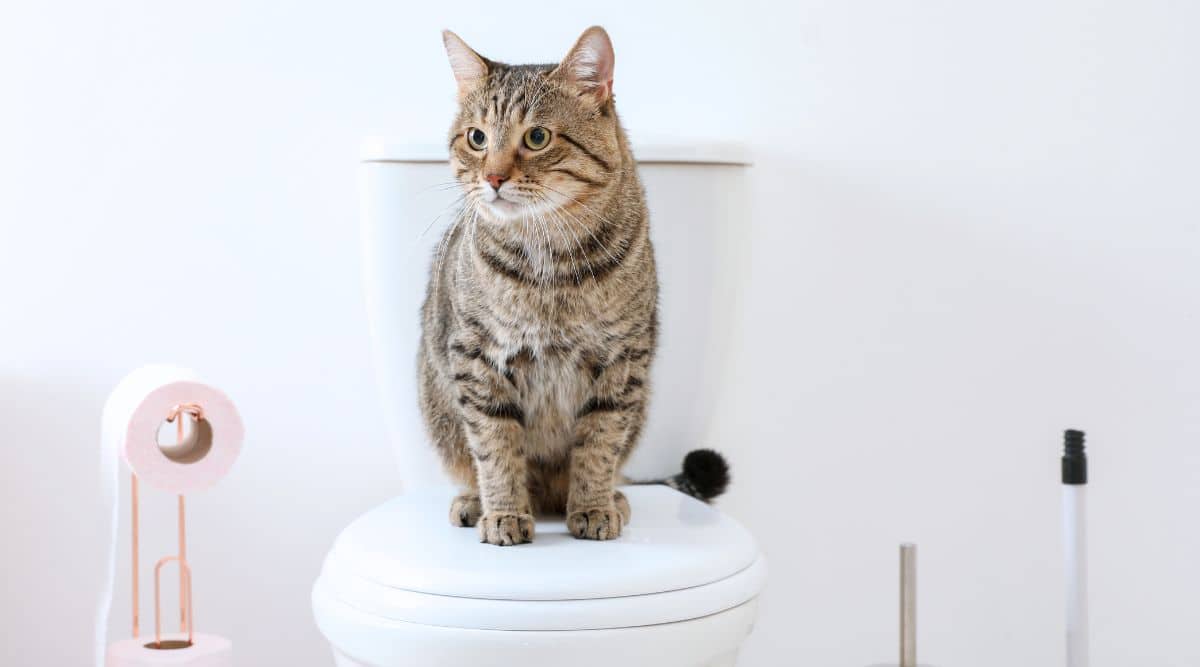Dangers of Flushing Cat Poop in Your Toilet - Precautionary Steps
Dangers of Flushing Cat Poop in Your Toilet - Precautionary Steps
Blog Article
Listed here down the page you will discover lots of extremely good tips about How to Dispose of Cat Poop and Litter Without Plastic Bags.

Intro
As feline owners, it's important to be mindful of exactly how we get rid of our feline friends' waste. While it may seem hassle-free to flush pet cat poop down the toilet, this method can have detrimental effects for both the environment and human health and wellness.
Ecological Impact
Purging cat poop presents harmful microorganisms and bloodsuckers into the water, posing a substantial risk to water ecological communities. These contaminants can adversely influence marine life and compromise water quality.
Health and wellness Risks
Along with environmental issues, purging pet cat waste can also present health dangers to human beings. Pet cat feces may consist of Toxoplasma gondii, a bloodsucker that can cause toxoplasmosis-- a potentially serious ailment, especially for expecting females and individuals with weakened immune systems.
Alternatives to Flushing
Luckily, there are more secure and more responsible methods to take care of pet cat poop. Consider the complying with choices:
1. Scoop and Dispose in Trash
One of the most common method of getting rid of feline poop is to scoop it right into an eco-friendly bag and toss it in the garbage. Make certain to make use of a devoted trash scoop and get rid of the waste immediately.
2. Usage Biodegradable Litter
Go with eco-friendly pet cat clutter made from products such as corn or wheat. These clutters are eco-friendly and can be securely dealt with in the trash.
3. Bury in the Yard
If you have a yard, consider hiding cat waste in a designated area away from vegetable gardens and water resources. Be sure to dig deep sufficient to stop contamination of groundwater.
4. Mount a Pet Waste Disposal System
Purchase a family pet waste disposal system specifically developed for cat waste. These systems use enzymes to break down the waste, decreasing odor and environmental impact.
Conclusion
Responsible pet ownership expands past giving food and sanctuary-- it additionally entails appropriate waste administration. By avoiding flushing cat poop down the commode and going with alternate disposal methods, we can minimize our ecological footprint and protect human wellness.
Why You Should Never Flush Cat Poop Down the Toilet
A rose by any other name might smell as sweet, but not all poop is created equal. Toilets, and our sewage systems, are designed for human excrement, not animal waste. It might seem like it couldn’t hurt to toss cat feces into the loo, but it’s not a good idea to flush cat poop in the toilet.
First and foremost, assuming your cat uses a litter box, any waste is going to have litter on it. And even the smallest amount of litter can wreak havoc on plumbing.
Over time, small amounts build up, filling up your septic system. Most litter sold today is clumping; it is made from a type of clay that hardens when it gets wet. Ever tried to scrape old clumps from the bottom of a litter box? You know just how cement-hard it can get!
Now imagine just a small clump of that stuck in your pipes. A simple de-clogger like Drano isn’t going to cut it. And that means it’s going to cost you big time to fix it.
Parasitic Contamination
Believe it or not, your healthy kitty may be harboring a nasty parasite. Only cats excrete Toxoplasma in their feces. Yet it rarely causes serious health issues in the cats that are infected. Most people will be fine too if infected. Only pregnant women and people with compromised immune systems are at risk. (If you’ve ever heard how women who are expecting are excused from litter cleaning duty, Toxoplasma is why.)
But other animals may have a problem if infected with the parasite. And human water treatment systems aren’t designed to handle it. As a result, the systems don’t remove the parasite before discharging wastewater into local waterways. Fish, shellfish, and other marine life — otters in particular — are susceptible to toxoplasma. If exposed, most will end up with brain damage and many will die.
Depending on the species of fish, they may end up on someone’s fish hook and, ultimately on someone’s dinner plate. If that someone has a chronic illness, they’re at risk.
Skip the Toilet Training
We know there are folks out there who like to toilet train their cats. And we give them props, it takes a lot of work. But thanks to the toxoplasma, it’s not a good idea.

I came across that piece about How to Dispose of Cat Poop and Litter Without Plastic Bags when doing a lookup on the web. Enjoyed reading our piece? Please share it. Help others find it. I recognize the value of reading our article about How to Dispose of Cat Poop and Litter Without Plastic Bags.
Schedule Appointment Report this page